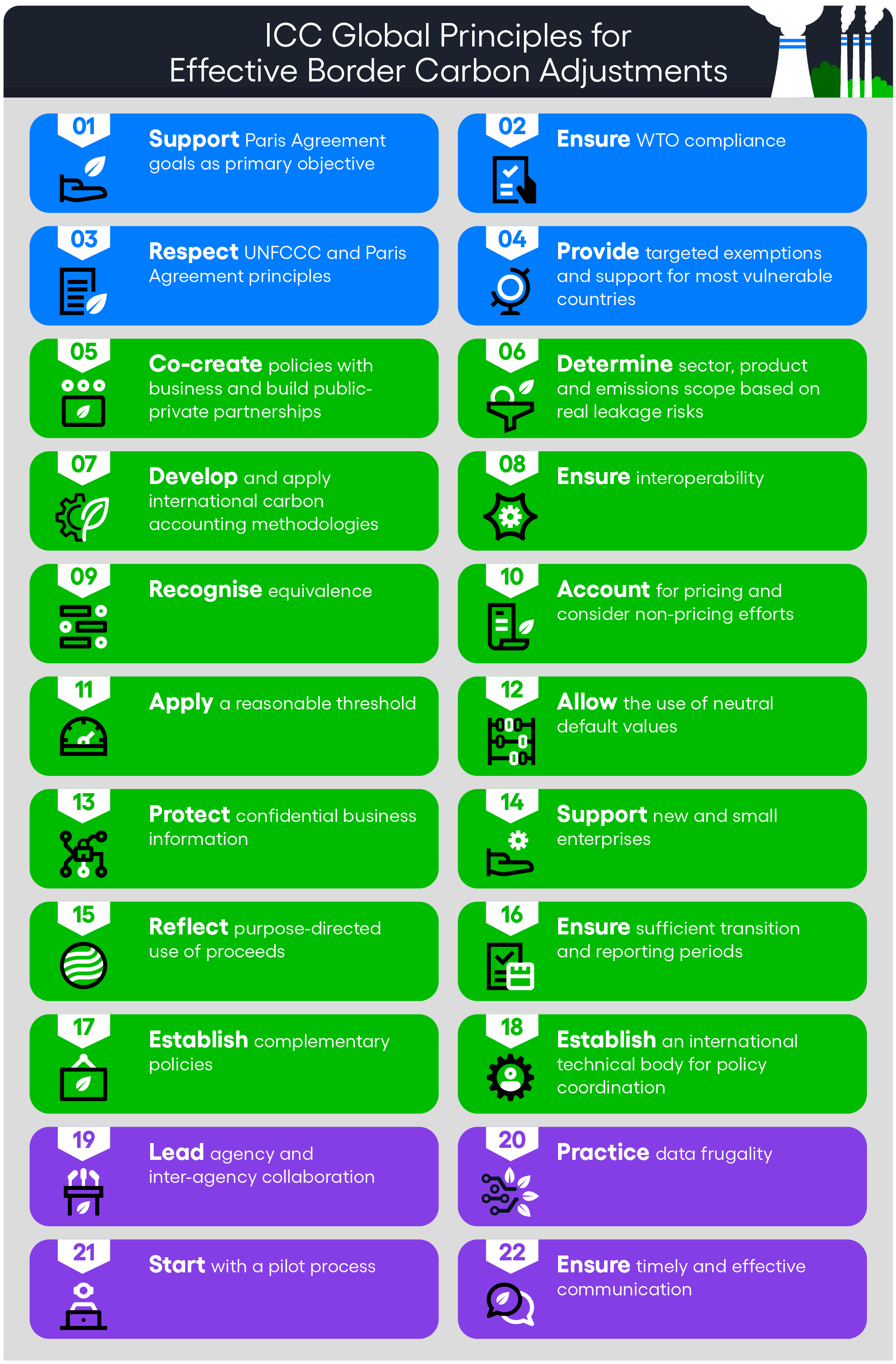Download the full report
- Select
- English
Reliance on the “Brussels effect” to tackle carbon leakage risks undermining the global climate action agenda, according to the International Chamber of Commerce (ICC). The global business organisation has called on governments to establish a new multilateral process to agree on global norms for the design, implementation and coordination of border carbon adjustments – reflecting growing concern within the business community about the potential adverse impacts of a proliferation of unilateral trade measures to tackle carbon leakage.
Go directly to:
In a new paper, “Global Principles for Effective Border Carbon Adjustments”, the global business organisation recognises the clear rationale for introducing border carbon adjustments given prevailing asymmetries in domestic climate policies – but cautions that a patchwork of uncoordinated national interventions could create severe compliance challenges for companies trading internationally and, moreover, undermine essential international cooperation to fight climate change.
Building on the experience of companies during the transitional implementation of the EU Carbon Border Adjustment Mechanism, ICC proposes that any future set of international principles for effective border carbon adjustments should include:
According to the new paper, such principles should be developed by trade and environment ministers – as part of a process kick-started by the G20 – with a new international technical body eventually established to support ongoing policy oversight and coordination.

ICC Secretary General John W.H. Denton AO has issued a vital message to climate ministers ahead of COP29 taking place in Baku from 11 to 22 November 2024, urging them to ensure that COP29 delivers two core outcomes.
Since 2021, ICC has drawn on the experience of its global members to develop core principles and guidance for the effective design of carbon pricing instruments. In this third report, building on our past work, ICC provides guidance to governments and policymakers to address carbon leakage, promote linkage for greater international cooperation and make carbon pricing systems more efficient.